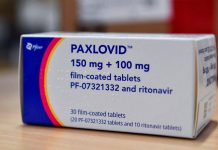Antiviral drugs are prescription medications recommended to prevent or treat flu complications. They are also prescribed to reduce the complexity or shorten the duration of flu once people have it.
The influenza virus causes influenza, which is commonly called the flu. It is characterized by flu-like symptoms such as fever, chills, body ache, cough, and sore throat.
Some people with flu may be at increased risk of developing complications such as pneumonia, ear or sinus infections, or even bloodstream infections. These complications are mainly seen in people with uncontrolled diabetes, cancer, and HIV/AIDS.
Generic Antiviral Drugs for Flu
There are a few drugs approved by the FDA for the prevention and treatment of flu. However, doctors encourage people to get their annual flu shot, which is the primary means of preventing influenza.
Generic antiviral drugs, which are approved by the FDA, are prescription medicines available in pills, liquid, an inhaled powder, or an intravenous solution. They fight against flu viruses in your body. Please note that generic antiviral drugs for flu are not sold over the counter (OTC).
One can get flu antiviral drugs if they have a prescription from a PCP. Remember, antiviral drugs are completely different from antibiotics. They are not advised for infection suspected to be caused by bacteria and vice versa. Antibiotics are used to treat bacterial infections such as strep throat, tuberculosis, pneumonia, etc. Antibiotics have no role to play in treating viral illnesses such as flu and the common cold.
The FDA- and CDC-approved flu antiviral drugs include:
- Peramivir (Generic Rapivab)
- Zanamivir (Generic Relenza)
- Oseltamivir (Generic Tamiflu)
- Baloxavir marboxil (Generic Xofluza)
Two other antiviral drugs called generic amantadine generic rimantadine have also been approved for treatment and prevention of influenza A infection. However, the CDC has stopped recommending these drugs because most strains of the flu virus are now resistant to these drugs.
Generic Xofluza, Generic Tamiflu, and Generic Relenza are advised for both flu prevention and treatment of influenza, according to the CDC. Generic Rapivab is given intravenously dose. Generic Relenza is also inhaled through the mouth.
These generic antivirals drugs are effective when given within 48 hours of the onset of flu symptoms, according to WebMD.
Some of the common side effects of these antivirals may include nausea, vomiting, runny or stuffy nose, cough, diarrhea, or mild behavioral changes. Generic Relenza is contraindicated in people with asthma, chronic obstructive pulmonary disease (COPD), or other respiratory diseases. The above-mentioned generic antiviral drugs are only prescribed for flu. They are not advised for other viral infections, including the new coronavirus, called SARS-CoV-2, which causes COVID-19 infection.























